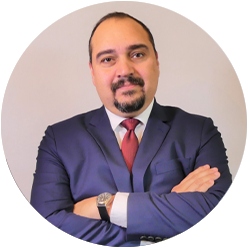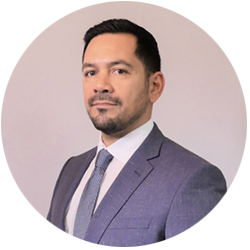If you are reading this, it is likely that you are currently facing a criminal charge in Florida. The experience can be overwhelming, and understandably, you may be feeling anxious and uncertain about what to expect. Navigating the complexities of a criminal case can leave anyone confused, especially when it comes to understanding the role of evidence in your trial. At our firm, we want to assure you that we are here to help. We understand how important it is to make informed decisions, and we are ready to guide you through the process every step of the way. Let’s start by answering some frequently asked questions about witnesses and testimonies in Florida criminal trials.
How Are Witnesses Used in Criminal Trials?
In a criminal trial, witnesses play a crucial role in helping the court understand what happened during the alleged crime. These individuals provide testimony based on their personal experiences and observations. There are generally two types of witnesses: prosecution witnesses and defense witnesses. The prosecution calls witnesses to support their case, while the defense may call witnesses to challenge the prosecution’s evidence. Both sides may also introduce witnesses, though these individuals are typically called to provide specialized knowledge or opinions on certain aspects of the case, such as forensic analysis or medical testimony.
Witnesses can testify in many ways. They may give an account of events they saw firsthand, provide an alibi, or offer evidence that could potentially weaken the credibility of the other party’s claims. It’s important to note that not all witnesses are necessarily called to the stand. In some cases, witnesses’ statements or depositions might be read aloud instead of their live testimony.
What Makes a Witness Testimony Reliable?
The reliability of a witness’s testimony can play a significant role in the outcome of your case. In Florida, the court expects witness testimony to be both truthful and consistent. The judge will assess how credible a witness is by considering factors such as their ability to recall details, their level of involvement in the case, and whether their testimony aligns with the facts. A reliable witness is typically one whose account is clear, direct, and does not seem biased in favor of one party or the other.
For example, if a witness is offering a direct account of the crime scene, the court will look at how specific their observations are. Did the witness clearly describe the suspect’s appearance, or are there contradictions in their statement? Sometimes, the defense may challenge a witness’s reliability if they have a history of making false statements, if they have an interest in the outcome of the case, or if they were under the influence of drugs or alcohol at the time of the observation.
Can a Witness Be Cross-Examined?
Yes, a witness in a Florida criminal trial can be cross-examined by the opposing side. Cross-examination is an important part of the trial process, where the defense or prosecution challenges the witness’s testimony. The goal is to uncover inconsistencies, biases, or inaccuracies in the witness’s statement. A skilled cross-examiner will ask pointed questions to expose any weaknesses in the testimony, potentially leading the court to question the credibility of the witness.
Cross-examination is a fundamental right in criminal trials, as it allows each side to thoroughly investigate the truthfulness of the testimony presented. If you are facing criminal charges, it is essential to have a defense attorney who knows how to effectively cross-examine witnesses to weaken the prosecution’s case. By doing so, they may help cast doubt on the evidence against you.
Choosing a Car Accident Attorney Personal Injury Case ValueRelated Videos
What Is the Role of Character Witnesses?
In some criminal cases, the defense may choose to call character witnesses to speak on behalf of the defendant. A character witness is someone who knows the defendant personally and can offer testimony about their behavior, reputation, and moral standing. These witnesses often provide insight into the defendant’s personality, showing that they are generally a law-abiding citizen and may not have committed the crime in question.
For example, a character witness could testify about the defendant’s role in their community, their good reputation at work, or their commitment to family and friends. While character witnesses cannot speak directly to the events of the crime, their testimony can help shape the jury’s perception of the defendant. It is important to note that not all criminal cases will involve character witnesses. Whether or not you should call one depends on the nature of your case and strategy.
What Is Hearsay Evidence and Why Is It Not Allowed?
Hearsay is a term often heard during criminal trials, and it refers to statements made outside of court that are offered as evidence to prove the truth of the matter asserted. In general, hearsay is not allowed as evidence in criminal trials in Florida. This rule exists because the person making the statement is not present in court to testify and be cross-examined, meaning the statement cannot be tested for its reliability.
Serious Results
However, there are some exceptions to the hearsay rule. For example, if the statement falls under a specific category such as a statement made during an emergency or a declaration against interest, it may be admissible. The rules governing hearsay are complex, and only an experienced attorney can determine if a specific statement or piece of evidence falls into an exception. If you are facing criminal charges and concerned about hearsay evidence being used against you, a skilled defense lawyer can work to exclude any inadmissible statements that may harm your case.
How Does Physical Evidence Play a Role in the Trial?
In many criminal cases, physical evidence such as DNA, fingerprints, weapons, or clothing may be introduced to support or disprove a claim. This evidence is vital because it often serves as tangible proof that either connects the defendant to the crime or suggests their innocence. For example, if a defendant’s fingerprint is found on a weapon at the scene of the crime, it could be used to establish their presence at the scene.
Physical evidence is subject to strict rules of admissibility. It must be properly collected, preserved, and documented to ensure that it has not been tampered with or contaminated. If there are any issues with how the evidence was handled, it may be deemed inadmissible in court. This is where an experienced defense attorney can be crucial. They can challenge the chain of custody of physical evidence and argue that the evidence should not be allowed to influence the trial’s outcome.
Can I Use My Own Testimony in My Defense?
As a defendant in a criminal trial, you have the right to testify in your defense if you choose to do so. However, this is a decision that should be made carefully with the advice of your attorney. If you decide to testify, you will be subject to cross-examination by the prosecution, which could potentially harm your case if the prosecution can successfully poke holes in your testimony.
On the other hand, choosing not to testify is also your constitutional right. If you decide to remain silent, the jury is not allowed to hold it against you. The prosecution bears the burden of proving the case beyond a reasonable doubt, and your decision not to testify cannot be used to imply guilt.
What Should I Do if I Believe a Witness Is Lying?
If you believe that a witness is lying or providing false testimony, it is crucial that you share this information with your defense attorney. Your lawyer can work to discredit the witness, point out contradictions in their testimony, and gather evidence to undermine their credibility. Witnesses who are caught lying on the stand may face legal consequences, and it is the defense’s job to ensure that the truth prevails in court.
Having a lawyer who is experienced in handling witness testimony and cross-examination can make a significant difference in the outcome of your case. They will know how to challenge false or misleading testimony effectively and protect your rights.
How Can We Help You with Your Case?
If you or a loved one is facing criminal charges in Florida, you may feel overwhelmed and uncertain about the future. Understanding how witnesses and testimonies work in a criminal trial is just the beginning. You need an attorney who will fight for your rights and provide you with the support you need throughout this process.
At Victory Law Firm P.A., we are here to guide you every step of the way. Our team has experience in handling criminal defense cases and is committed to ensuring that you receive the best possible outcome for your situation. If you need legal assistance, do not hesitate to reach out to us. We are ready to help you achieve a successful case result.
To learn more about this subject click here: What to Expect During a Criminal Trial in Florida



